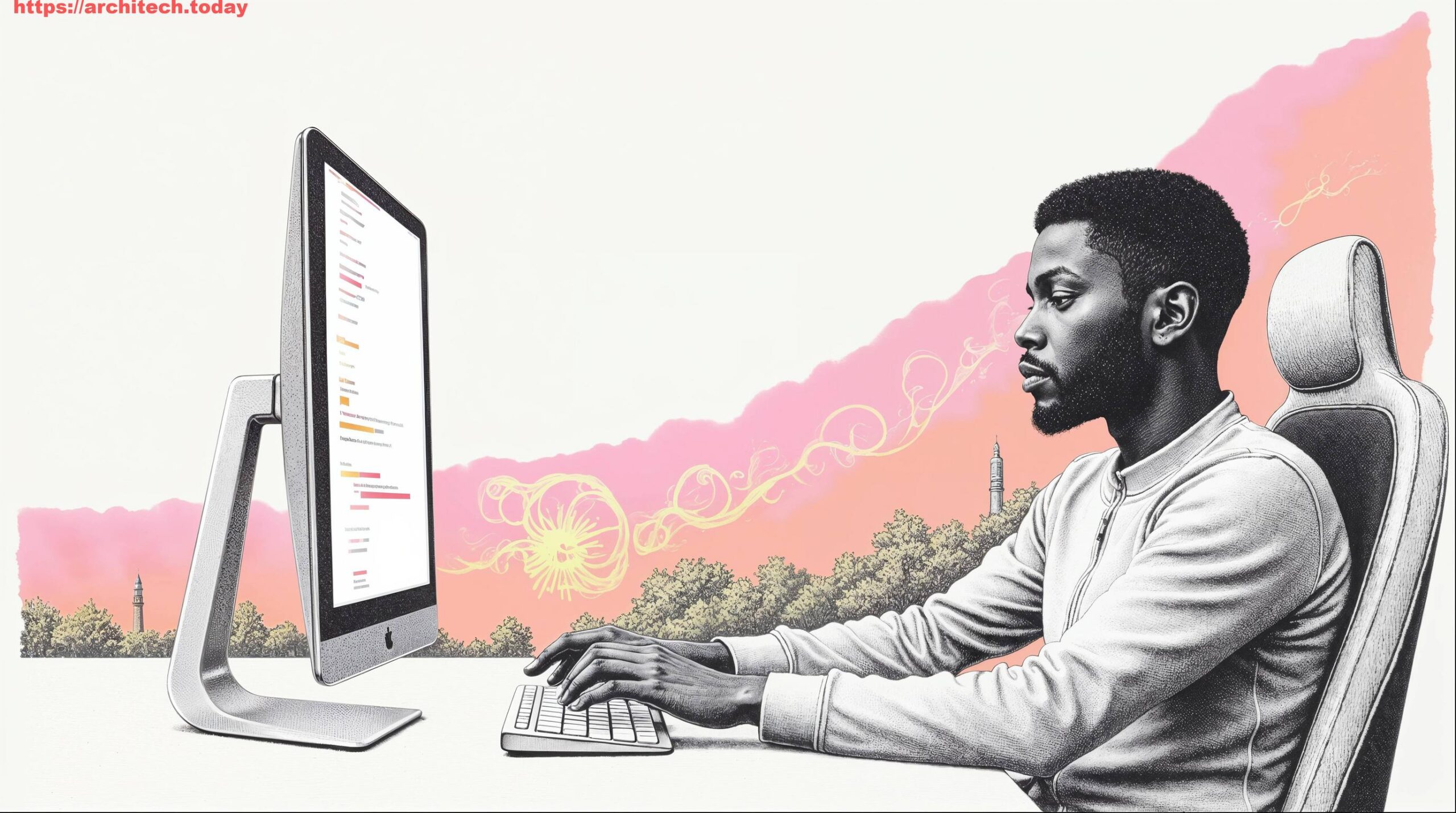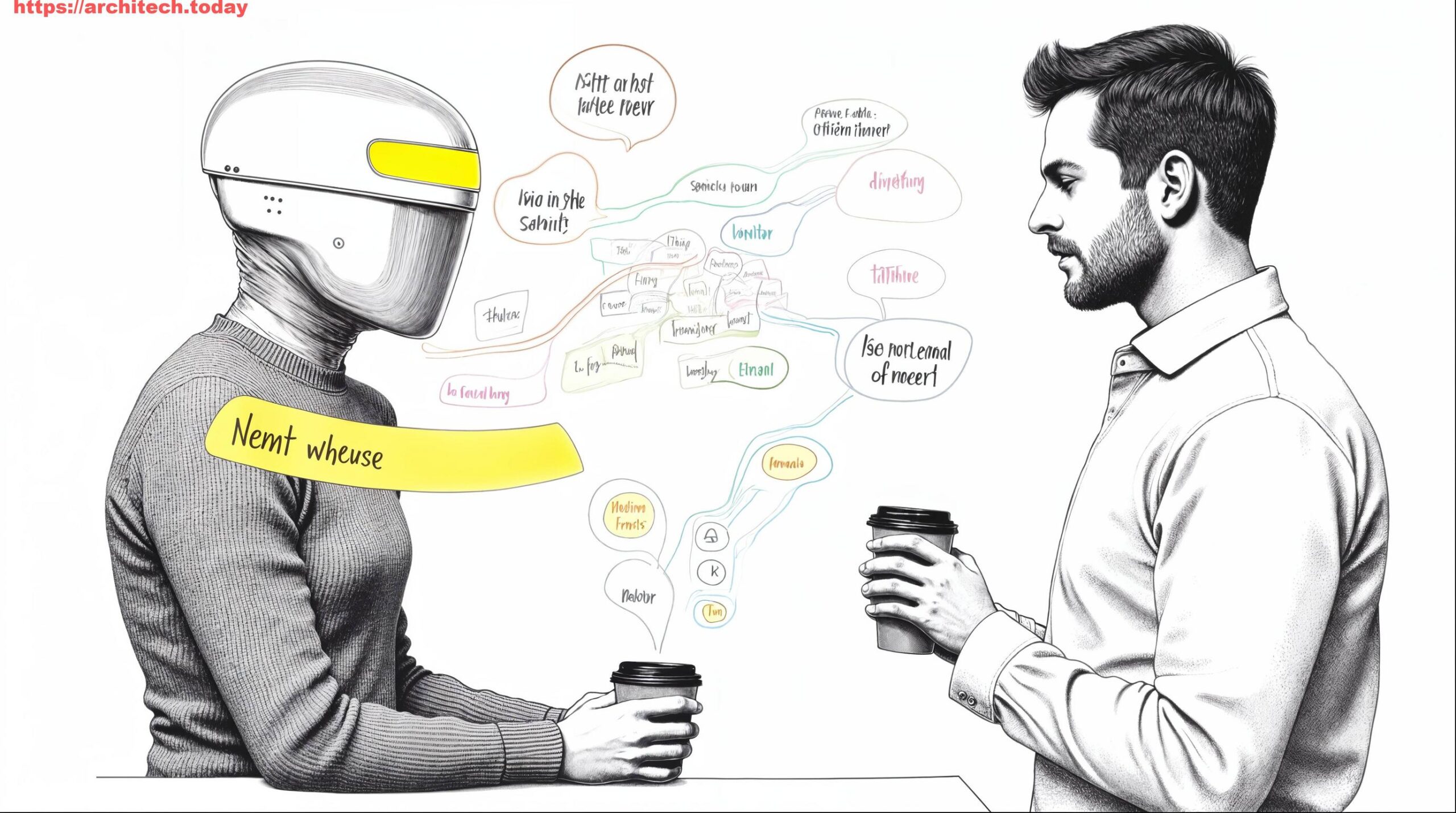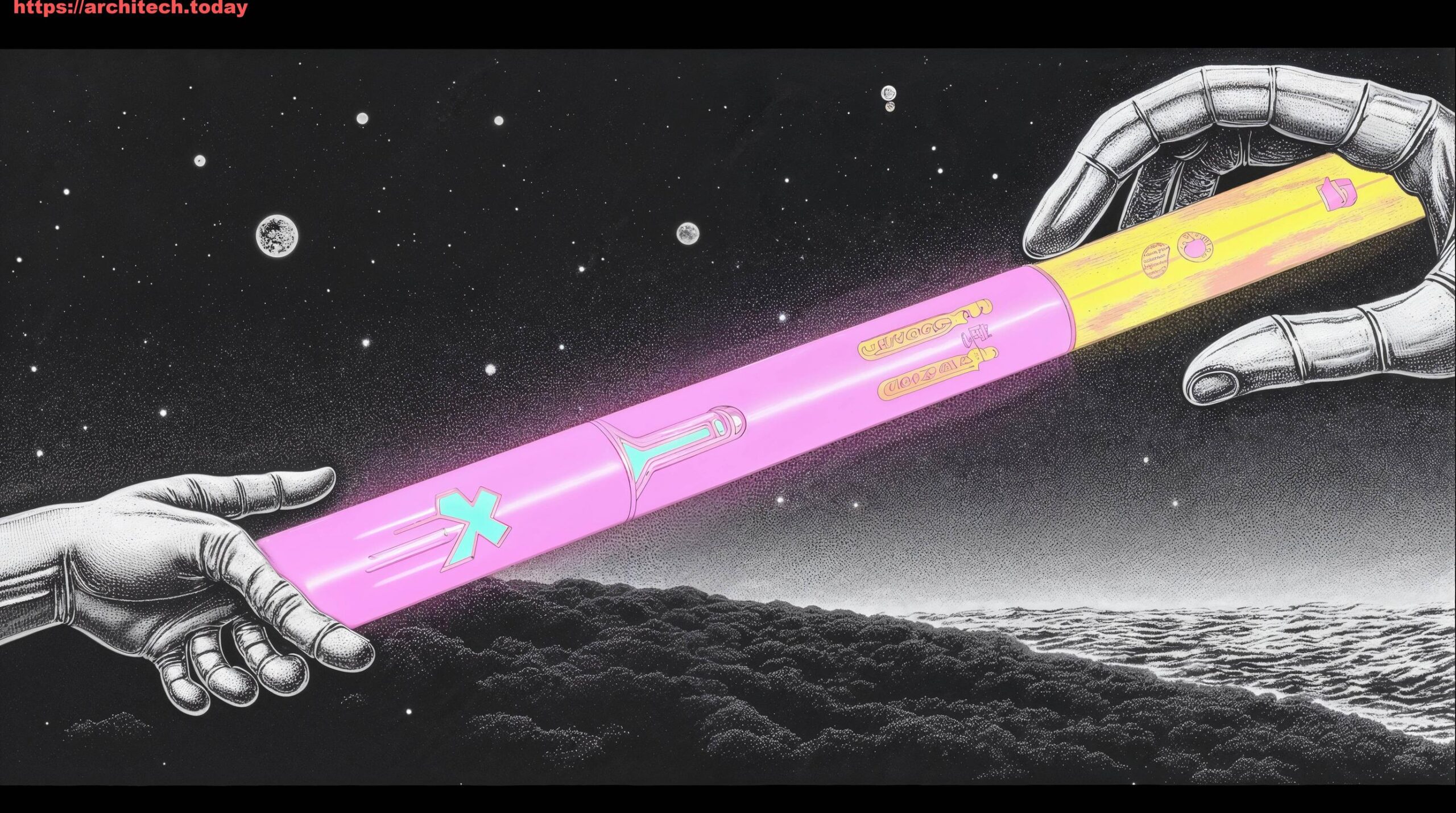Project Managers of 2030: Are You Ready for Your AI Co-Pilot?
Imagine it’s 2025. You wake up, grab your coffee, and before you’ve even checked your email, your AI assistant has already outlined the day’s critical project updates, flagged potential bottlenecks in your latest sprint, and even drafted a proactive communication to a key stakeholder about a minor delay. This isn’t science fiction; it’s the rapidly approaching reality of Artificial Intelligence reshaping the world of project management. The question on everyone’s mind isn’t if AI will impact project management, but how deeply will it change the very fabric of the role? Will project managers become obsolete, mere echoes in the digital wind, or will they evolve into something far more powerful?
For project managers and business leaders alike, the surge of AI can be both exhilarating and a little unsettling. The thought of an AI taking over tasks, crunching numbers faster, and identifying risks with precision, is compelling. But does it mean the end of the human touch in guiding complex initiatives? This forward-looking piece aims to dissect that very debate. We’ll explore the current capabilities of AI in project management, project its potential future trajectory, and most importantly, identify the uniquely human elements that will not only endure but become even more critical. Our goal isn’t to be overly rosy or unduly alarmist, but to provide reassurance through insight: yes, things will change; no, you (the human) aren’t going away – here’s how you remain valuable. Spoiler alert: The rise of our robot overlords as project managers has been greatly exaggerated.
The AI Ascent: What AI Can Do (and Already Does) in Project Management
Today’s AI in PM: Beyond Simple Automation
In the present landscape, Artificial Intelligence is no longer a futuristic concept confined to research labs; it’s a pragmatic tool already integrated into various facets of project management. Think of it as moving from a dial-up modem in a 5G world to a hyper-efficient broadband connection. AI has quietly begun automating the monotonous, data-intensive tasks that once consumed countless project manager hours, freeing up valuable time for more strategic endeavors. This isn’t just about simple automation, like setting up recurring meetings; it’s about intelligent automation and insightful analysis that provides actionable intelligence.
Consider the realm of scheduling. While traditional project management software relies on human input for task dependencies and durations, AI-powered tools can analyze vast historical project data, identify patterns, and even predict optimal timelines with unprecedented accuracy. They can dynamically adjust schedules in real-time based on new inputs, resource availability, and even external factors like weather forecasts or market shifts. For a product manager, this might mean AI prioritizing a feature backlog not just by stakeholder request, but by predicted user impact and development effort, leading to faster value delivery. For a project manager, it translates into predictive tools that can foresee potential delays even before they become apparent, allowing for proactive mitigation strategies rather than reactive firefighting. This shift from reactive problem-solving to proactive prevention is a monumental leap, enhancing decision-making quality and speed.
Beyond scheduling, AI excels in data analysis and risk prediction. Modern AI algorithms can sift through mountains of project data – financial reports, performance metrics, communication logs, even team sentiment analysis – to uncover hidden trends, identify subtle correlations, and pinpoint potential risks that a human eye might miss. Imagine an AI flagging a slight dip in team morale, correlating it with an upcoming deadline, and suggesting a team-building activity or a workload rebalancing. Or an AI that analyzes contract clauses and identifies potential legal risks in a vendor agreement. This capability extends to comprehensive reporting, where AI can generate detailed, customized reports on project health, budget adherence, and performance KPIs at a moment’s notice, allowing project managers to focus on interpreting the data rather than painstakingly compiling it. Furthermore, AI is beginning to assist in communication simulation, helping draft initial project briefs, status updates, or even basic stakeholder communications, ensuring consistency and clarity. These advancements underscore a fundamental shift: AI is not just taking over tasks; it’s enhancing the very intelligence with which projects are managed.
Tomorrow’s AI: Autonomous Sprints and Intelligent Orchestration
As we gaze further into the future, the capabilities of AI in project management are set to expand dramatically, transforming what we perceive as possible. We’re moving beyond assistance to genuine collaboration, where AI becomes an even more sophisticated co-pilot, or in some scenarios, a truly autonomous agent for routine and predictable workflows. Picture a project status meeting in 2030: instead of a human facilitator manually updating a Kanban board, an AI-driven project bot might present an updated agile sprint plan, dynamically adjusted based on real-time code commits, bug reports, and even the individual productivity patterns of team members. This isn’t just about moving cards; it’s about intelligent orchestration where the AI continuously optimizes the flow of work, identifies dependencies across multiple teams, and even suggests innovative approaches to complex problems.
The vision for tomorrow includes AI-generated project plans that aren’t merely templates, but bespoke, dynamic blueprints crafted by AI learning from thousands of past successful projects, tailoring them to specific organizational contexts and constraints. This level of foresight and planning would dramatically reduce the initial setup time for projects and potentially identify optimal pathways that human planners might overlook. Resource optimization, already a complex challenge, will be supercharged by AI, enabling real-time allocation of talent and assets across a portfolio of projects, maximizing efficiency and minimizing bottlenecks. This intelligent resource management could predict future resource needs based on project trajectory and even suggest skill development pathways for team members to meet anticipated demands.
Furthermore, advanced communication simulation will evolve beyond drafting basic messages. Imagine an AI that can analyze stakeholder communication styles and preferences, suggesting the most effective phrasing or channel for a critical update to ensure maximum engagement and understanding. For routine issues, an AI might even be empowered to resolve them autonomously, escalating only truly unique or complex problems requiring human intervention. Hypothetically, an AI could fully manage routine agile sprints, from assigning tasks based on skill and availability, tracking progress, conducting stand-ups via automated summaries, and even managing small-scale blockers. The project manager’s role in such a scenario would shift from taskmaster to strategic orchestrator, overseeing the AI’s performance, intervening for complex human issues, and focusing on the overarching vision rather than the meticulous execution. This evolution highlights a future where AI handles the predictable and data-driven aspects of project management with unparalleled efficiency, allowing human leaders to ascend to higher-value activities.
The Unseen Force: What AI Can’t Replicate (Yet)
The Human Edge: Empathy, Influence, and Vision
While AI’s capabilities in data processing, optimization, and automation are undeniably impressive, there remains a formidable fortress of human attributes that Artificial Intelligence, at least in its current and foreseeable forms, cannot replicate. These are the nuances of human interaction, the complexities of emotional intelligence, and the intrinsic ability to inspire and lead. This is the “human edge” – the unique blend of empathy, influence, and vision that is the cornerstone of effective project leadership. Think of it as trying to teach a supercomputer to truly appreciate a piece of art or understand the subtle humor in a casual conversation; the logic might be processed, but the deeper meaning and emotional resonance are profoundly human.
At the heart of project success lies leadership – not just command and control, but the ability to inspire a diverse group of individuals towards a common goal. This requires empathy: understanding team members’ motivations, fears, and personal challenges; recognizing unspoken concerns; and providing support beyond the purely task-oriented. An AI can track performance metrics, but it cannot truly comprehend the emotional toll of a missed deadline on a team member, nor can it offer genuine encouragement or diffuse interpersonal conflict with the subtle art of human negotiation. Creativity, too, falls squarely in the human domain. While AI can generate novel solutions based on existing data, it lacks the intuitive leap, the “aha!” moment, that comes from synthesizing disparate concepts in a truly innovative way, often driven by emotional connection or unforeseen insight. This is particularly crucial in problem-solving where there’s no pre-existing data or obvious pattern to follow, demanding a flexible, imaginative approach.
Furthermore, stakeholder management is a delicate dance of influence, political navigation, and relationship building. AI can analyze communication patterns and even predict stakeholder reactions, but it cannot build the trust that comes from personal rapport, nor can it skillfully negotiate complex demands while preserving vital relationships. It cannot “read the room” during a tense meeting or understand the underlying, unstated agendas that often drive decisions. These are not merely data points; they are intricate webs of human emotions, motivations, and power dynamics. The ability to inspire a team through a challenging phase, to communicate a compelling vision that resonates on an emotional level, or to mediate a heated disagreement between executives – these are acts of profound human skill that rely on intuition, emotional intelligence, and a deep understanding of human psychology. These elements constitute the irreplaceable core of the project manager’s role, ensuring that projects are not just completed, but completed by motivated, cohesive teams, delivering value that extends beyond mere technical specifications.
Navigating the Nuances: The Art of Project Leadership
Beyond the fundamental human attributes of empathy and creativity, project leadership demands a nuanced approach to situations where data alone simply isn’t enough. This is where the “art” of project management truly comes into play, distinguishing a successful human leader from even the most advanced AI. Consider situations involving complex decision-making where variables are constantly shifting, incomplete information is the norm, and the human element introduces unpredictable factors. An AI can process perfect data and apply logical rules, but real-world projects are messy, filled with ambiguity, and often require judgment calls based on gut feeling, experience, and an understanding of organizational culture – elements difficult, if not impossible, to quantify and feed into an algorithm. This means navigating ethical dilemmas, making tough calls that balance competing interests, and deciding on a course of action when there’s no clear “right” answer, only a “best fit” under uncertainty.
Conflict resolution is another domain where human project managers demonstrate their invaluable worth. While an AI might identify a conflict based on communication analytics, it cannot effectively mediate a dispute between two strong-willed team members, understanding their underlying grievances, emotional responses, and personal histories. Resolving conflict requires a deep understanding of human psychology, active listening, and the ability to build consensus through negotiation and compromise. It’s about healing rifts, not just identifying them. Similarly, fostering positive team dynamics and building a cohesive, high-performing culture are profoundly human tasks. An AI can analyze communication frequency, but it cannot instill trust, promote psychological safety, or foster a sense of belonging and shared purpose within a team. These are the soft skills that underpin collaboration, innovation, and resilience – qualities that are critical for navigating the inevitable challenges of any complex project.
Finally, the ability to inspire, motivate, and adapt to unforeseen human-centric challenges remains exclusively human. Projects rarely unfold exactly as planned; unexpected personal issues, shifting team dynamics, or sudden changes in stakeholder priorities demand a leader who can adjust, pivot, and re-energize their team. An AI might identify a deviation from the plan, but it cannot deliver the pep talk that reinvigorates a demoralized team, nor can it provide the compassionate support needed when a team member faces a personal crisis. It cannot anticipate and mitigate the political undercurrents within an organization, nor can it craft a compelling vision that excites and unites a diverse group of individuals towards a shared future. These are the unpredictable, often illogical, yet deeply human elements that define project success in the real world. This is why, as many industry experts including those at PMI and Gartner increasingly acknowledge, the future project manager will thrive not by competing with AI, but by leveraging it to amplify these distinctly human capabilities.
Evolving Roles: The PM as a “Chief Motivator” and Strategic Orchestrator
From Taskmaster to Visionary: The PM’s New Mandate
The rise of AI in project management signals not an extinction event for project managers, but a profound evolution of their role. The image of the project manager as a meticulous taskmaster, buried under Gantt charts and daily progress reports, is becoming as outdated as a flip phone in an iPhone era. Instead, the new mandate for project managers is to ascend to a more strategic, visionary, and human-centric leadership position. With AI handling the heavy lifting of data analysis, scheduling optimization, risk identification, and even routine communication, project managers are liberated from the “grunt work” that once consumed the majority of their time and energy. This liberation allows them to pivot from micro-management to macro-orchestration, from tactical execution to strategic foresight.
Imagine the project manager no longer meticulously updating spreadsheets, but rather interpreting AI-generated insights to make high-level strategic decisions. They can dedicate more time to understanding the broader business context, aligning project goals with organizational objectives, and anticipating future market shifts. This shift means less time chasing updates and more time engaging with key stakeholders, building critical relationships, and ensuring that the project delivers true, long-term value. The focus moves from simply “getting things done” to “getting the right things done in the most impactful way.” The project manager becomes the steward of the project’s vision, ensuring that every piece of work contributes meaningfully to the overarching strategic goals. This expanded capacity for strategic thought and oversight transforms the PM into a true business partner, deeply embedded in the organization’s core initiatives and driving innovation rather than merely managing existing processes. They are no longer just keeping the train on the tracks; they are helping design the tracks and plot the destination.
This evolving role also emphasizes the project manager as a “chief motivator.” In an environment where AI handles the quantitative aspects, the human leader’s role in inspiring, coaching, and empowering their team becomes paramount. They become the emotional intelligence hub of the project, fostering a positive culture, resolving human-centric conflicts, and ensuring team well-being. This involves a deeper understanding of team dynamics, individual strengths and weaknesses, and tailoring approaches to maximize collective output. It’s about creating an environment where human creativity can flourish, where team members feel valued, and where challenges are met with collective resilience. Organizations that embrace this collaborative human-AI model will find their project managers transformed into strategic orchestrators, capable of driving complex projects with unprecedented efficiency and human insight, ultimately delivering superior results. This is about augmentation, not replacement, allowing humans to focus on what they do best: leading, innovating, and connecting.
Future-Proofing Your PM Career: A New Skillset
For project managers feeling the seismic shifts brought on by AI, the critical question isn’t whether your role will change, but how you can proactively adapt and thrive in this new landscape. Future-proofing your project management career isn’t about competing with AI; it’s about embracing it as an incredibly powerful ally and focusing on the skills that AI cannot replicate. This calls for a significant shift in professional development, moving away from purely technical or process-driven competencies towards a more holistic skillset that leverages uniquely human capabilities. The analogy here isn’t about running faster than the robot, but learning to ride the robot to reach new heights.
The first imperative is to become proficient in leveraging AI tools. Understand their capabilities, their limitations, and how to integrate them seamlessly into your workflow. This doesn’t mean becoming an AI developer, but becoming an informed and skilled user. Learn how to interpret AI-generated insights, how to feed it the right data, and how to ask the right questions to extract maximum value. Embrace project management software that incorporates AI for scheduling, risk prediction, resource allocation, and reporting. This allows you to offload the repetitive, data-intensive tasks and free up valuable cognitive bandwidth. For example, instead of spending hours manually forecasting resource needs, an AI tool can provide predictive analytics, allowing you to focus on strategic resource acquisition or conflict resolution.
Simultaneously, the focus must sharpen on honing uniquely human skills. These are the “soft skills” that will be the “hard skills” of tomorrow’s project manager. Strategic thinking becomes paramount: the ability to see the big picture, understand market dynamics, anticipate future trends, and align projects with long-term organizational goals. Communication skills will evolve from mere information dissemination to truly compelling storytelling, persuasive negotiation, and empathetic listening. Emotional intelligence (EQ) will be the superpower of the future PM – the ability to understand, manage, and influence emotions, both your own and those of your team and stakeholders. This includes conflict resolution, fostering psychological safety, and building cohesive, high-performing teams. Creativity and innovation, the capacity to generate novel solutions to unforeseen problems and to foster a culture of continuous improvement, will also be crucial. As reports from leading organizations like the Project Management Institute (PMI) and Gartner consistently highlight, the future PM role will shift from a focus on process execution to one emphasizing strategic leadership, complex problem-solving, and human-centric collaboration. The advice is clear: embrace AI for the grunt work, and invest deeply in cultivating your human leadership capabilities to truly future-proof your career in an AI-augmented world.
Opportunities and Pitfalls: A Balanced Perspective
The Bright Side: Unlocking New Efficiencies and Insights
The integration of Artificial Intelligence into project management presents a vast landscape of opportunities, promising a future where projects are executed with unprecedented efficiency, precision, and strategic insight. On the bright side, AI acts as a powerful amplifier, augmenting human capabilities rather than simply replacing them. The most immediate and tangible benefit is the unlocking of new efficiencies. AI can automate mundane, repetitive, and time-consuming tasks such as data entry, progress tracking, routine reporting, and even initial risk assessments. This doesn’t just save time; it reduces human error, allowing project teams to allocate their valuable human capital to more complex, creative, and high-impact activities. Imagine the sheer volume of administrative tasks that can be offloaded, freeing up project managers and their teams to focus on core innovation, problem-solving, and direct stakeholder engagement. This shift allows for faster project delivery, as bottlenecks identified by AI can be addressed proactively, and resource allocation can be optimized in real-time, preventing costly delays.
Beyond mere efficiency, AI provides project managers with unparalleled access to insights. By analyzing vast datasets—from historical project performance to market trends and even sentiment analysis from team communications—AI can identify subtle patterns, correlations, and predictive indicators that would be impossible for a human to discern. This capability translates into better, more informed decision-making. For instance, an AI can forecast project timelines with higher accuracy, identify the optimal path for resource deployment across a portfolio, or predict potential cost overruns well in advance. This predictive power allows project leaders to move from a reactive stance to a truly proactive one, mitigating risks before they materialize and seizing opportunities as they emerge. Furthermore, AI can enhance communication and collaboration by providing intelligent summaries of discussions, identifying key action items, and even suggesting optimal communication channels or styles for specific stakeholders. It means projects are not only managed more effectively but also delivered with greater strategic alignment and a higher likelihood of success. The benefits extend to reduced project failures, improved budget adherence, and a more predictable outcome, transforming project management into a highly data-driven and strategically impactful discipline.
The Cautionary Tale: Ethical AI, Bias, and Over-reliance
While the opportunities presented by AI in project management are compelling, a balanced perspective demands acknowledging the potential pitfalls and challenges that accompany this technological leap. It’s not enough to simply embrace AI; project leaders must do so with caution, foresight, and a strong ethical framework. One of the most significant concerns revolves around algorithmic bias. AI systems learn from the data they are fed. If this historical data contains inherent human biases—whether conscious or unconscious—related to hiring practices, performance evaluations, or resource allocation, the AI will perpetuate and even amplify these biases. This could lead to unfair task assignments, skewed performance metrics, or discriminatory resource distribution, undermining team morale and project fairness. Ensuring data diversity, transparency in algorithms, and continuous human oversight is crucial to mitigate this risk. Without careful calibration, what appears to be an objective system could inadvertently reinforce existing inequalities.
Another significant pitfall is the risk of over-reliance on AI. While AI can provide invaluable insights and automate complex processes, it should remain a tool, not a decision-maker without human accountability. Over-reliance could lead to a decline in critical thinking skills among project managers if they blindly accept AI recommendations without applying their own judgment, experience, and understanding of context. What happens when an AI makes a decision based on faulty data or an unforeseen edge case? Who is ultimately accountable? Establishing clear lines of responsibility and ensuring that human project managers retain the ultimate authority for strategic decisions and ethical considerations is paramount. This isn’t about doubting the technology, but about maintaining human agency and accountability. Furthermore, data privacy and security are growing concerns. Project data often contains sensitive information about finances, personnel, and intellectual property. entrusting this data to AI systems, especially cloud-based ones, requires robust security protocols and strict adherence to data governance regulations. A breach or misuse of this data could have severe repercussions, from legal liabilities to reputational damage.
Finally, while the narrative of job displacement has been largely tempered by the concept of augmentation, there is still the potential for some roles or tasks to be fully automated. This necessitates a proactive approach to workforce reskilling and upskilling, ensuring that project management professionals are equipped with the new skills required for an AI-augmented future. Organizations must invest in training and development to help their human talent adapt and thrive, transforming potential job displacement into an opportunity for career evolution. The future of AI in project management is not a binary choice between human and machine; it is a complex collaboration that requires careful navigation of both its immense potential and its inherent risks. Responsible AI implementation, ethical considerations, and continuous human oversight will be key to harnessing its power for good.
Conclusion: The Augmented Future of Project Management is Here
As we stand on the precipice of a new era, the question “Will AI take over project management?” finds a nuanced and reassuring answer: no, not in its entirety. Instead, Artificial Intelligence is poised to transform the project manager’s role from a meticulous taskmaster into a strategic orchestrator and chief motivator. The future isn’t about AI replacing human project managers, but rather about AI augmenting their capabilities, freeing them from the mundane, and elevating their focus to the uniquely human aspects of leadership, empathy, and strategic vision.
We’ve explored how AI is already streamlining scheduling, risk prediction, and data analysis, and how it will continue to evolve towards more autonomous functions in predictable areas. Yet, the core essence of project leadership – the ability to inspire a team, navigate complex human dynamics, build trust with stakeholders, and make intuitive decisions in ambiguous situations – remains firmly in the human domain. These are the irreplaceable skills that differentiate a good project from an exceptional one, driving innovation and fostering resilience in the face of unforeseen challenges.
The message is clear: for project managers and business leaders curious or anxious about AI’s long-term career impacts, the path forward is not one of fear, but of proactive adaptation. Embrace AI as your powerful co-pilot, allowing it to handle the quantitative grunt work. Simultaneously, double down on honing your uniquely human skills: strategic thinking, emotional intelligence, persuasive communication, conflict resolution, and visionary leadership. This is how you future-proof your career and truly thrive in an AI-augmented world. As we look ahead, the most successful projects will be those where human ingenuity and AI efficiency converge, creating a synergy that delivers unprecedented value. How will you prepare for this evolving landscape? What human skills will you prioritize to become the strategic orchestrator of tomorrow?








No comment yet, add your voice below!